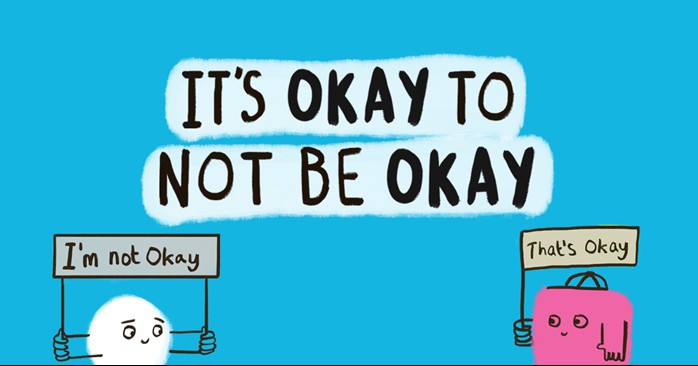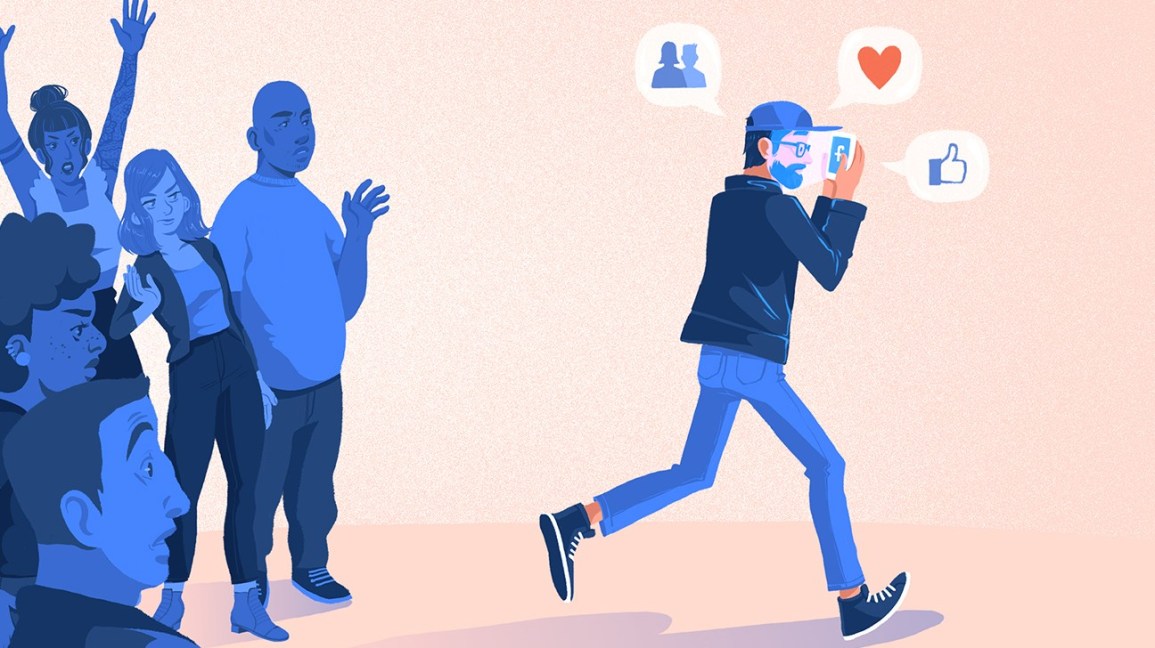New research shows that our digital world is slowly taking a toll on our psychological state by ingraining feelings of fear, low self-esteem, alienation, and invalidation into our daily lives. Historically, these acute emotional traumas have been manageable on an individual level, but as our behaviors with social media and smartphones continue to evolve, so do the compounding effects that these feelings bring onto our psyche. This year, Deloitte reported that the average person number of times that a person with views her phone over 50 times a day — a 10% increase since just last year. And because much of that increase in screen time has been linked to increases in social media use, recent bodies of research from the likes of University of Michigan and the Anxiety and Depression Association of America (ADAA) have found that social media may act as a precursor to several mental health issues like social anxiety, ADHD, and depression. We tap, click, and swipe our phones over 2,500 times a day on average — much of the time, to see content like pictures and videos that have potentially negative effects on the way we perceive ourselves and the world.
The constant funnel of negative news only compounds the mental health epidemic. Unfortunately, social media pages and news channels know this — most often, the stories that create the most fear and drama are the ones that grab our attention and engage us so deeply. Even when we’re bombarded by people, news, and content that we like, we sometimes succumb to FOMO and inadvertently lower our own self-esteem through comparison or self-shame. It’s basic human nature: when we’re overcome by fear or negativity, we fall into an adrenalized state, and as we continue to dive deeper into social media, the continued increases of adrenaline disrupt the way we process information and make it harder to manage our emotions. Over several years, these minor disruptions turn into damaging mental health disorders with very real consequences.
Traditionally, much of the way we treat mental health issues has been surrounded by stigma. If someone was injured in a car accident, for example, we’re culturally taught to treat that person with sympathy — we might send our condolences, offer prayers, and ask to learn more about how that person is recovering. On the other hand, if someone was disabled by depression, we often respond with stigma — that person may be reminded that she should get over her depression because other people have it much worse, or simply told to just “stop being sad.” Simple scenarios like this make clear why mental health stigma prevents people from feeling like it’s okay to get help when they need it.

Creating More Conversation Around Mental Health
We know that social media isn’t going away anytime soon, but there’s a new conversation building around mental health awareness on social media. In order for people to understand that mental health issues are real and worthy of conversation, celebrities and cause organizations have turned to social media to share their own mental health stories and how they continue to thrive, which turns negative content into encouraging content. The thinking is that creating more transparency between people and their mental health issues is the key to help people become more thoughtful and vocal about their own mental health. There’s no better way to reach mass amounts of people at once than social media.
Creating a Global Movement for Mental Health on Social Media
The Crystal Campaign is one such mental health advocacy organization flipping the script on social media. The organization is partnering up with brands, non-profits, celebrities, and business leaders to make a real impact on mental health awareness and end the stigma, intentionally using digital platforms. On Instagram, they’ve created the world’s first Instagram magazine dedicated to mental health (@thecrystalcampaign), where they feature an alliance of celebrities and brands that are making a difference for mental health awareness. Many of The Crystal Campaign’s features, from NBA star, Kevin Love to Justin Bieber, are openly sharing their private, personal experiences with mental illness and how they continue to recover from those issues. The stories, like JK Rowling’s growth from depression and poverty to being the most successful author in the world, offer a source of encouragement and inspiration for those in need. Ultimately, their mission is to leverage Instagram to make mental health equally as important and common of a conversation as physical health. But it doesn’t stop at awareness — they even created a crystal necklace in partnership with fashion retailer Fred Segal in Los Angeles. Every necklace sold will help 240 people connect to affordable resources in support of nonprofit organization To Write Love On Her Arms. As CEO Andrei Najjar notes, “We partner with a network of direct-relief organizations and top brands to create real-time advocacy and raise funds for mental health causes. I have always believed that if you can make a change in the world, you should.”
Plenty of new tools have been developed to get people away from their phones entirely, but resources like The Crystal Campaign’s magazine make it easier for people to connect with mental health inspiration and resources without having to cut themselves off completely. With enough attention, people will take more action on social media to share about their own mental health, which is a step in the right direction to end the link between social media and poor mental health. As social media begins to nurture more positive conversation, especially around mental health and illness, people around the world will begin to understand a more inclusive definition of health that represents both mind and body.
Sources:
U of Mich — https://news.umich.edu/facebook-use-predicts-declines-in-happiness-new-study-finds/
ADAA — https://adaa.org/social-media-obsession
Quartz — https://index.qz.com/1100509/you-probably-touch-tap-and-swipe-your-phone-2617-times-per-day/


